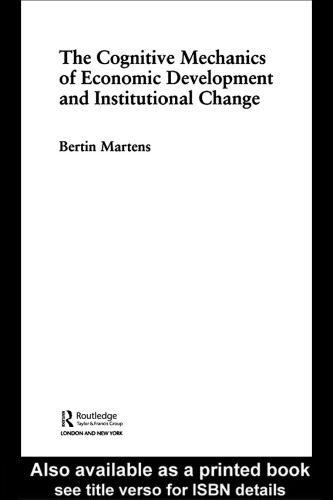

Most ebook files are in PDF format, so you can easily read them using various software such as Foxit Reader or directly on the Google Chrome browser.
Some ebook files are released by publishers in other formats such as .awz, .mobi, .epub, .fb2, etc. You may need to install specific software to read these formats on mobile/PC, such as Calibre.
Please read the tutorial at this link: https://ebookbell.com/faq
We offer FREE conversion to the popular formats you request; however, this may take some time. Therefore, right after payment, please email us, and we will try to provide the service as quickly as possible.
For some exceptional file formats or broken links (if any), please refrain from opening any disputes. Instead, email us first, and we will try to assist within a maximum of 6 hours.
EbookBell Team

4.3
78 reviews
ISBN 10: 0415326338
ISBN 13: 9780415326339
Author: Bertin Martens
This book seeks to explain long-term economic development and institutional change in terms of the cognitive features of human learning and communication processes. Martens links individual cognitive processes to macroeconomic growth theories, including economies of scale and scope, and to theories of institutional development based on asymmetric i
1 Introduction
2 The uneasy relationship between knowledge and economics
3 The role of distributed knowledge in economics
4 Knowledge and the principle of cognitive economy
5 Communication and distributed knowledge
6 The economy as a knowledge communication system
7 Economies of scope
9 The state’s monopoly on violence
10 Endogenous institutions
the cognitive trade-off hypothesis
cognitive mechanisms and economic behavior
cognitive economy
the cognitive movement was
what is the cognitive trade-off hypothesis
the cognitive economy
Tags: Bertin Martens, Cognitive, Mechanisms